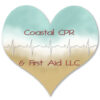I received this comment on my posting of the video of the 2010 Guidelines:
The term “accreditation” is an often-misunderstood term in the CPR industry. No organization exists that provides a national endorsement or accreditation to any CPR course provider. The American Heart Association cannot approve, endorse, or give accreditation for CPR training for any other organization. Each first aid certification provider is free to construct their own curriculum, standards, and teaching methods based on the ECC/ILCOR guidelines. American Academy of CPR & First Aid, Inc, courses strictly follow the ECC/ILCOR guidelines.
So at first I’m irritated, but then again I get A LOT of spam on the blog. Since I moderate the blog I decided that in the interest of fairness I would post the comment, but added the following reply.
Thanks Gold Price, but consider this….
The American Heart Association, American Safety & Health Institute, American Red Cross, National Safety Council, and the Emergency Care & Safety Institute all also strictly follow ECC/ILCOR 2010 Guidelines. What makes their programs different than the American Academy of CPR & First Aid that you cite?
All the programs I listed have classroom or blended online/skills courses. The program you mention is a website that lures people to pay money to read & take an online test and then print off a certification card that few employers or organizations will accept. Why are these online cards not accepted? …. because THERE IS NO HANDS ON SKILLS COMPONENT tied into the skills. But let’s look deeper into the ILCOR Guidelines as published in Circulation 2010; 122: S250-S275 This is a quote from Part 1: the Executive Summary of the 2010 International Consensus on Cardiopulmonary Resuscitation and Emergency Cardiovascular Care Science With Treatment Recommendations
There are multiple methods for delivering course content. This section examines specific instructional methods and strategies that may have an impact on course outcomes. Short video/computer self-instruction (with minimal or no instructor coaching) that includes synchronous hands-on practice in BLS can be considered as an effective alternative to instructor-led courses.
Please note the inclusion of the phrase “that includes synchronous hands-on practice in BLS”.
Any online program can follow ILCOR ECC Guidelines by just citing the 2010 Guidelines. Heck, I could post them on this website. But how well can you learn and provide a hands-on skill in an emergent situation if you’ve never practiced it?
The term “online course” can be misleading, the AHA, ASHI, and ARC all have online programs. They are “blended” courses, meaning part of the course is taken online, but the participant must meet with an instructor for a hands-on skills session before the earn the card.
Anyone can take an online course, I could take it right now and pass. My friends could ask me to take the course for them and put their name on it and they would have a card. Because the emphasis in nationally recognized programs is on a skills component to the class, these online ‘programs’ and their certification card the participant prints off on their own printer, are not usually accepted. Thus the participant has paid to take a brief online course and print off a worthless card.
Just posting on a website that the course is meets ILCOR or ECC Guidelines is not sufficient. Hands-on skills practice is still the best way to learn a practical skill.
You can find links to all the documents on the ILCOR website

3) Training – AED acquirer state laws many times dictate that you have to ensure expected users are trained in American Heart or Red Cross or equal CPR & AED certified courses (American Safety & Health Institute, Medic First, Health & Safety Institute, Emergency Care & Safety Institute, American Health Association, etc). These certifications range depending on which training org you use but every 1-2 years the certification expires and needs to be renewed. Courses can be obtained locally at Red Cross locations or through the American Heart Association network but also there are over 100,000 instructor throughout the US alone and there are local training centers that can provide a competitive price for CPR & AED, First Aid, and Bloodborne Pathogen or Universal Precautions plus other more advanced or supplemental add-on training classes. Various online solutions are also available. Think Safe has a listing of US training centers and online solutions; contact us at or info@think-safe.com if you would like to contact a local trainer in your area.
The first aid courses is very important for everyone. Through this we can help other people and save their life.CPR traning give the knowledge how to save the life of another and how to help the other people
Thanks Mark. You’re right First Aid and CPR AED classes are important for everyone to learn. I’ll apologize, but I took the link to your website out of your comment. Why did I do that? Because it was to a website that had online-only ‘certification’ classes with no hands on component. If you had read this post you would have realized the post was about how online-only courses are a sham. To protect you I removed the link so you would not appear as spamming my blog with comments directing readers to your own website that will take their money, provide an online course and issue a ‘card’ they can print at home that no one will accept. My apologies if you are unhappy with my decision, but I felt it necessary to maintain the integrity of my blog. I agree that CPR AED and First Aid courses provide the knowledge that can be used to help and save the lives of others; and that’s why I teach what I do.